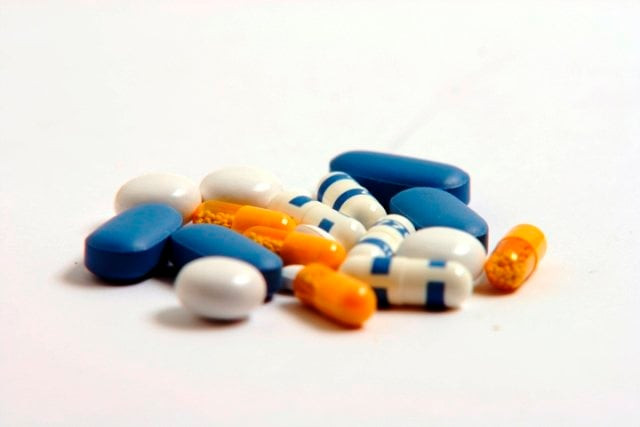Study finds alarming rate of antibiotic consumption in Pakistan
Overuse of antibiotics is resulting in antibiotic resistance

PHOTO: FILE
This was disclosed in research, titled 'Global Increase and Geographic Convergence in Antibiotic Consumption between 2000 and 2015'.
Published in the 'Proceedings of the National Academy of Sciences' last month, the study dealt with 76 countries. It found that Pakistan was the third highest consumer of antibiotics after India and China among the low and middle income countries.
Between 2000 and 2015, the antibiotic consumption increased from 3.2 billion DDD to 6.5 billion DDD in India, undergoing 103% growth, and from 2.3 billion DDD to 4.2 billion DDD in China with the growth rate of 79%, according to the study.
"The use of antibiotics around the world jumped by 65% between 2000 and 2015. There were over 42 billion daily doses of antibiotics consumed. This is expected to rise to 128 billion by 2030," reads the report.
‘Prescribe drugs by generic rather than brand name’
The huge consumption of antibiotics has been resulting in antibiotic resistance at an alarming scale. The World Health Organisation (WHO) has also called for altering the trends of prescribing and consuming the antibiotics in order to deal with antibiotic resistance, which has been termed a major global threat.
The bulk of the increase in the antibiotic consumption over the years came from low and middle income countries. However, some rich countries like the United States, France and Italy also witnessed a marginal increase in the antibiotic consumption between 2000 and 2015.
Talking to The Express Tribune, professor of microbiology and vice-chancellor of Dadabhoy Institute of Higher Education Dr Shahana Urooj Kazmi said the antibiotics resistance, which was the ability of microbes to evolve and withstand the effects of antibiotics, was a significant cause of illnesses and mortality globally and the increase in antibiotic consumption was the primary cause of antibiotic resistance.
According to the professor, antibiotic resistance was one of the biggest threats to global health, food security, and development in the current times. Many diseases, including pneumonia, tuberculosis, gonorrhoea, and salmonellosis, were becoming difficult to treat as antibiotics, which were being used to treat them, were becoming less effective, Prof Kazmi said.
"Self-prescription, which is very common in Pakistan and its neighbouring country, needs to stop immediately or else [many] diseases will be incurable in this region," she added. According to her, the trend of taking unnecessary antibiotics was more prevalent in high income and educated population than low income people, who mainly relied on doctors for prescription.
WHO guidelines:
"Antibiotic resistance leads to longer hospital stays, higher medical costs and increased mortality. Without urgent action, we are heading for a post-antibiotic era, in which common infections and minor injuries can once again kill," the WHO says in one of its guidelines.
Excessive use of antibiotics
The Global Action Plan on Antimicrobial Resistance endorsed by the member states of the WHO and affirmed at a global meeting during the 71st General Assembly of the United Nations in 2016 recommended that all countries collect and report antibiotic consumption data.
Country-wise data on antibiotic use is needed to monitor regional and global trends over time, compare antibiotic use among countries, and provide a baseline for the evaluation of future efforts to reduce antibiotic use.
According to the WHO, the antibiotic resistance is accelerated by the misuse and overuse of antibiotics, as well as poor infection prevention and control. It suggests that steps be taken at all levels to reduce the impact and limit the spread of antibiotic resistance.
An individual should only use antibiotics when they are prescribed by a certified health professional. People should not insist on consuming antibiotics if the physician does not prescribe them. WHO recommends that infections be prevented through maintaining hygiene and antibiotics be used only when they are required.



















COMMENTS
Comments are moderated and generally will be posted if they are on-topic and not abusive.
For more information, please see our Comments FAQ